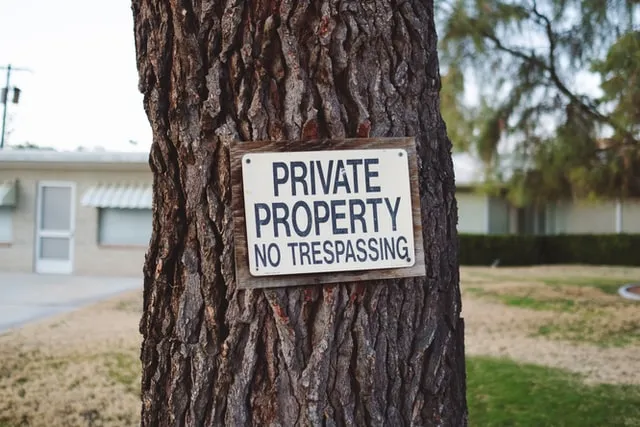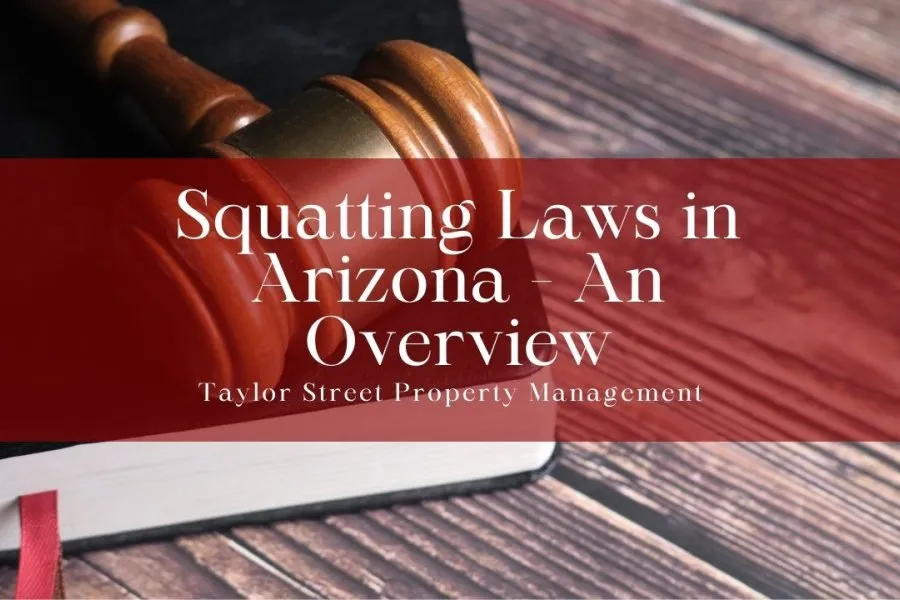Defining Squatter’s Rights in Arizona
Adverse Possession is a form of squatter rights. If a squatter resides in your Arizona property for a certain amount of time and meets a specific set of guidelines, then your property may be at risk of becoming theirs legally, even without an exchange of payment.
As a landlord, you must familiarize yourself with the real estate law in Arizona to prevent costly issues down the line.
Understanding Squatter’s Rights in Arizona
A squatter must be in possession of your property for a certain period to gain Squatter’s Rights. In Arizona, a squatter must be occupying your property between 5 and 13 years. What’s more, they must occupy your property in a specific way for them to have squatter’s rights.
The Squatter Must Make a Hostile Claim
From a legal standpoint, ‘hostile’ can be defined in three ways, but Arizona only recognizes one. In Arizona, the intent of a squatter isn’t relevant to adverse possession. The squatter may or may not know that they are trespassing on someone else’s property.
The Squatter Must Show Proof of Presence
They must also treat the property like the real owner would like by making improvements and maintaining it. In Arizona, if a squatter has made some efforts to improve the property, the time requirement for possessing the property changes.

Instead of 13 years, they will only need to occupy the property for 5 uninterrupted years to make an adverse possession claim. But if they have only cultivated the land and not paid property taxes, then the time would be extended to 10 years.
The Occupancy of the Property Must be Obvious
The squatter shouldn’t try to hide the fact that they are living on the property. Even the property owner should be able to tell that a stranger is living there.
The Property Cannot be Shared and Possession Must be Continuous
The squatter must not be sharing possession of the property with anyone else. They must have a continuous possession period required for an adverse possession claim. What’s more, the squatter must not abandon the property for some time and then return to claim it. As per Arizona adverse possession laws, even leaving it for a couple of weeks may invalidate their claim.
Other Requirements
- Color of Title: Having color of title, in a legal sense, simply means that you have one of the documents required for property ownership. In Arizona, Color of Title isn’t necessary. But if you have a reasonable document, the required time of occupation reduces to 3 years for rural property and 5 years for a city property.
- Payment of Property Taxes: The state requires that a squatter pay property taxes for at least 5 consecutive years before filing an adverse possession claim.

How to Protect Your Arizona Property From Squatters
Property owners can take certain measures to prevent squatters from entering their Arizona properties. The following are some steps you should take:
- Secure your property. If you’ll be leaving it vacant for some time, make sure you block all entryways. Also, install security cameras throughout the property.
- Ask a neighbor to check the property regularly.
- Put “No Trespassing” signs throughout the property.
- Call the police immediately if you notice someone living there.
- Hire a property management company to rent out the vacant property. A good company will take care of everything on your behalf, from finding a responsible tenant to maintain it while generating your rental income.
How to Evict a Squatter from Your Arizona Property
The state has special rules in regard to getting rid of squatters. One of the best ways to stop an adverse possession claim is to file a ‘quiet title lawsuit.’ You can do this during occupation or after the squatter has filed an adverse possession claim.
A ‘quiet title lawsuit’ is a simple legal action that asks the courts to confirm who the real property owner is. By confirming your legal ownership of the home, it’ll stop the adverse possession claim from happening.
The state also has a handful of laws as far as getting squatters off of your property. The first is the guest removal law. This allows landlords to remove unwelcome guests who aren’t stated on the written lease. You’ll simply need to call the police to sort out the situation without infringing on the squatter’s rights.

If this provision doesn’t apply to your situation, however, the next option you’d have is to evict the squatter from your property.
In Arizona, as is with any other state, the eviction process begins with a written eviction notice. You must carefully choose the appropriate one in order for the eviction to go through. When looking to remove a squatter from the property, the 5-Day Notice to Pay Rent is the most appropriate.
The unconditional quit notice will give them a maximum of 5 days to pay all due rent or move out. If the squatter doesn’t do either of the two, you can move to court for further help. And in the absence of a binding agreement, the court will most likely rule in your favor.
Please note that self-help eviction tactics are against the law. Even with a successful ruling, only a law enforcement officer can physically remove the squatter.
Summary
Understanding adverse possession, Arizona’s squatting laws as well as squatters rights helps to protect landlords and their properties. If you would like help managing your properties reach out to a qualified property management company today.
Taylor Street Property Management is well-versed with Arizona property and landlord-tenant laws. As a comprehensive property management company, we can help you find a reliable tenant to fill your property. Get in touch with us to learn more about our services!
Disclaimer: This post is not a substitute for professional legal advice. For more information please contact a licensed attorney or property management company.


